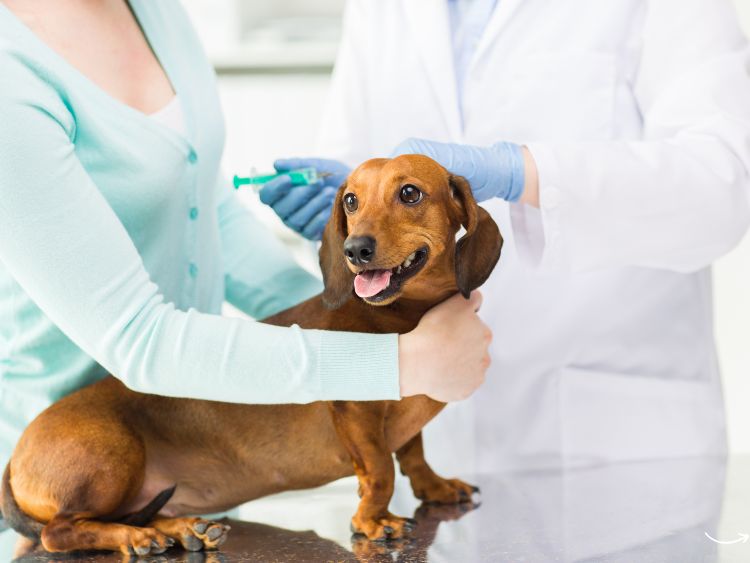So, you’ve brought home a cute little furball, and you’re ready to embark on the wonderful journey of puppy parenthood. One of the most crucial aspects of ensuring your puppy grows into a healthy and happy dog is maintaining a proper vaccination record. But what exactly does a puppy vaccination record entail, and why is it so important? Let’s dive into the nitty-gritty details and find out how to keep your puppy’s vaccinations on track.
Why Is a Puppy Vaccination Record Important?
Ensuring Your Puppy’s Health
Vaccinations are essential for protecting your puppy against a variety of serious and potentially fatal diseases. By keeping a detailed vaccination record, you can ensure that your puppy receives all necessary shots on schedule, thereby safeguarding their health.
Compliance with Regulations
In many places, having a complete vaccination record is not just recommended; it’s required by law. This is especially true for vaccinations against rabies, which are mandated in most regions.
Facilitating Vet Visits
A well-maintained vaccination record makes vet visits smoother and more efficient. It provides your vet with a clear history of your puppy’s health and vaccinations, allowing for better-informed decisions regarding future care and treatments.
What Should Be Included in a Puppy Vaccination Record?
A comprehensive puppy vaccination record should include several key pieces of information:
- Puppy’s Details: Name, breed, date of birth, and identification details such as microchip number.
- Vaccine Information: Type of vaccine, date of administration, and date of the next scheduled dose.
- Veterinarian Details: Name, clinic, and contact information of the administering veterinarian.
Essential Vaccinations for Puppies
Puppies require a series of vaccinations during their first year to protect them from various diseases. Here’s a rundown of the essential vaccines:
Core Vaccinations
- Distemper
- Parvovirus
- Adenovirus
- Rabies
These vaccines are considered essential due to the severity and contagiousness of the diseases they prevent.
Non-Core Vaccinations
- Bordetella (Kennel Cough)
- Lyme Disease
- Leptospirosis
- Canine Influenza
These vaccines are recommended based on your puppy’s lifestyle and exposure risk.
Puppy Vaccination Schedule
The First Few Months
- 6-8 Weeks: First round of vaccinations (Distemper, Parvovirus, Adenovirus)
- 10-12 Weeks: Second round of core vaccinations
- 14-16 Weeks: Third round of core vaccinations and the first rabies shot
Beyond the First Year
- 1 Year: Booster shots for core vaccines and additional rabies shot
- Every 1-3 Years: Booster shots as recommended by your vet
Maintaining Your Puppy’s Vaccination Record
Digital Records
In today’s digital age, maintaining a digital copy of your puppy’s vaccination record can be incredibly convenient. There are several apps and online platforms designed specifically for this purpose. They can send you reminders for upcoming vaccinations and keep all your records in one easily accessible place.
Physical Records
While digital records are handy, it’s also wise to keep a physical copy of your puppy’s vaccination record. This can be in the form of a vaccination card or a dedicated section in your puppy’s health journal.
FAQs About Puppy Vaccination Records
How often should my puppy be vaccinated?
Your puppy should follow a vaccination schedule that includes several rounds of shots during their first year and booster shots annually or triennially, depending on the vaccine and your vet’s recommendations.
What happens if I miss a vaccination?
If you miss a vaccination, contact your vet as soon as possible. They can help you get back on track and ensure your puppy remains protected.
Are there any side effects to puppy vaccinations?
Most puppies experience only mild side effects, such as slight swelling at the injection site or a temporary decrease in activity. Severe reactions are rare but should be addressed immediately by a vet.
Can I vaccinate my puppy myself?
It’s strongly recommended to have vaccinations administered by a veterinarian to ensure they are given correctly and to keep accurate records.
Conclusion
Keeping a detailed and accurate puppy vaccination record is an essential part of responsible pet ownership. It ensures your puppy stays healthy, helps you comply with legal requirements, and makes vet visits more efficient. Whether you choose to maintain digital or physical records, the most important thing is to stay on top of your puppy’s vaccination schedule.
By following these guidelines and staying informed, you’ll give your puppy the best start in life. After all, a healthy puppy is a happy puppy!
Authoritative Links
For further reading and resources, check out the following authoritative websites:

